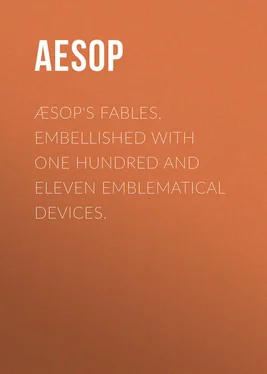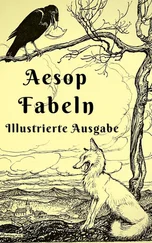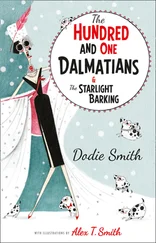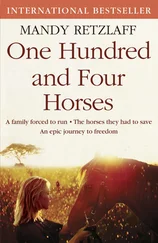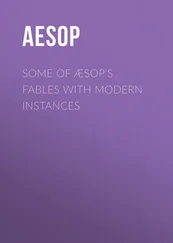Aesop - Æsop's Fables, Embellished with One Hundred and Eleven Emblematical Devices.
Здесь есть возможность читать онлайн «Aesop - Æsop's Fables, Embellished with One Hundred and Eleven Emblematical Devices.» — ознакомительный отрывок электронной книги совершенно бесплатно, а после прочтения отрывка купить полную версию. В некоторых случаях можно слушать аудио, скачать через торрент в формате fb2 и присутствует краткое содержание. ISBN: , Издательство: Иностранный паблик, Жанр: foreign_antique, foreign_prose, foreign_children, на английском языке. Описание произведения, (предисловие) а так же отзывы посетителей доступны на портале библиотеки ЛибКат.
- Название:Æsop's Fables, Embellished with One Hundred and Eleven Emblematical Devices.
- Автор:
- Издательство:Иностранный паблик
- Жанр:
- Год:неизвестен
- ISBN:http://www.gutenberg.org/ebooks/39187
- Рейтинг книги:5 / 5. Голосов: 1
-
Избранное:Добавить в избранное
- Отзывы:
-
Ваша оценка:
- 100
- 1
- 2
- 3
- 4
- 5
Æsop's Fables, Embellished with One Hundred and Eleven Emblematical Devices.: краткое содержание, описание и аннотация
Предлагаем к чтению аннотацию, описание, краткое содержание или предисловие (зависит от того, что написал сам автор книги «Æsop's Fables, Embellished with One Hundred and Eleven Emblematical Devices.»). Если вы не нашли необходимую информацию о книге — напишите в комментариях, мы постараемся отыскать её.
Æsop's Fables, Embellished with One Hundred and Eleven Emblematical Devices. — читать онлайн ознакомительный отрывок
Ниже представлен текст книги, разбитый по страницам. Система сохранения места последней прочитанной страницы, позволяет с удобством читать онлайн бесплатно книгу «Æsop's Fables, Embellished with One Hundred and Eleven Emblematical Devices.», без необходимости каждый раз заново искать на чём Вы остановились. Поставьте закладку, и сможете в любой момент перейти на страницу, на которой закончили чтение.
Интервал:
Закладка:
Happiness and misery, and oftentimes pleasure and pain, exist merely in our opinion, and are no more to be accounted for than the difference of tastes. "That which is one man's meat, is another man's poison," is a proposition that ought to be allowed in all particulars, where the opinion is concerned, as well as in eating and drinking. Our senses must inform us whether a thing pleases or displeases, before we can declare our judgment of it; and that is to any man good or evil, which his own understanding suggests to him to be so, and not that which is agreeable to another's fancy. And yet, as reasonable and as necessary as it is to grant this, how apt are we to wonder at people for not liking this or that, or how can they think so and so! This childish humour of wondering at the different tastes and opinions of others, occasions much uneasiness among the generality of mankind. But, if we considered things rightly, why should we be more concerned at others differing from us in their way of thinking upon any subject whatever, than at their liking cheese, or mustard; one, or both of which, we may happen to dislike? In truth, he that expects all mankind should be of his opinion, is much more stupid and unreasonable than the Ass in the fable.
FABLE VI
A Lark, who had Young Ones in a field of corn which was almost ripe, was under some fear lest the reapers should come to reap it before her young brood were fledged, and able to remove from the place: wherefore, upon flying abroad to look for food, she left this charge with them – that they should take notice what they heard talked of in her absence, and tell her of it when she came back again. When she was gone, they heard the owner of the corn call to his son – 'Well,' says he, 'I think this corn is ripe enough; I would have you go early to-morrow, and desire our friends and neighbours to come and help us to reap it.' When the Old Lark came home, the Young Ones fell a quivering and chirping round her, and told her what had happened, begging her to remove them as fast as she could. The mother bid them be easy; 'for,' says she, 'if the owner depends upon friends and neighbours, I am pretty sure the corn will not be reaped to-morrow.' Next day she went out again, upon the same occasion, and left the same orders with them as before. The owner came, and stayed, expecting those he had sent to: but the sun grew hot, and nothing was done, for not a soul came to help him. 'Then,' says he to his son, 'I perceive these friends of ours are not to be depended upon; so that you must even go to your uncles and cousins, and tell them, I desire they would be here betimes to-morrow morning to help us to reap.' Well, this the Young Ones, in a great fright, reported also to their mother. 'If that be all,' says she, 'do not be frightened, children, for kindred and relations do not use to be so very forward to serve one another; but take particular notice what you hear said the next time, and be sure you let me know it.' She went abroad the next day, as usual; and the owner, finding his relations as slack as the rest of his neighbours, said to his son, 'Hark ye! George, do you get a couple of good sickles ready against to-morrow morning, and we will even reap the corn ourselves.' When the Young Ones told their mother this, 'Then,' says she, 'we must be gone indeed; for, when a man undertakes to do his business himself, it is not so likely that he will be disappointed.' So she removed her Young Ones immediately, and the corn was reaped the next day by the good man and his son.
Never depend upon the assistance of friends and relations in any thing which you are able to do yourself; for nothing is more fickle and uncertain. The man, who relies upon another for the execution of any affair of importance, is not only kept in a wretched and slavish suspense while he expects the issue of the matter, but generally meets with a disappointment. While he, who lays the chief stress of his business upon himself, and depends upon his own industry and attention for the success of his affairs, is in the fairest way to attain his end: and, if at last he should miscarry, has this to comfort him – that it was not through his own negligence, and a vain expectation of the assistance of friends. To stand by ourselves, as much as possible, to exert our own strength and vigilance in the prosecution of our affairs, is god-like, being the result of a most noble and highly exalted reason; but they who procrastinate and defer the business of life by an idle dependance upon others, in things which it is in their own power to effect, sink down into a kind of stupid abject slavery, and show themselves unworthy of the talents with which human nature is dignified.
FABLE VII
The Fox, passing early one summer's morning near a farm-yard, was caught in a springe, which the farmer had planted there for that end. The Cock, at a distance, saw what happened; and, hardly yet daring to trust himself too near so dangerous a foe, approached him cautiously, and peeped at him, not without some horror and dread of mind. Reynard no sooner perceived it, but he addressed himself to him, with all the designing artifice imaginable. 'Dear cousin,' says he, 'you see what an unfortunate accident has befallen me here, and all upon your account: for, as I was creeping through yonder hedge, in my way homeward, I heard you crow, and was resolved to ask you how you did before I went any further: but, by the way, I met with this disaster; and therefore now I must become an humble suitor to you for a knife to cut this plaguy string; or, at least, that you would conceal my misfortune, till I have gnawed it asunder with my teeth.' The Cock, seeing how the case stood, made no reply, but posted away as fast as he could, and gave the farmer an account of the whole matter; who, taking a good weapon along with him, came and did the Fox's business, before he could have time to contrive his escape.
Though there is no quality of the mind more graceful in itself, or that renders it more amiable to others, than the having a tender regard to those who are in distress; yet we may err, even in this point, unless we take care to let our compassion flow out upon proper objects only. When the innocent fall into misfortune, it is the part of a generous brave spirit to contribute to their redemption; or, if that be impossible, to administer something to their comfort and support. But, when wicked men, who have been enemies to their fellow-subjects, are entrapped in their own pernicious schemes, he that labours to deliver them, makes himself an associate in their crimes, and becomes as great an enemy to the public as those whom he would screen and protect.
When highwaymen and housebreakers are taken, condemned, and going to satisfy justice, at the expense of their vile paltry lives; who are they that grieve for them, and would be glad to rescue them from the rope? Not honest men, we may be sure. The rest of the thieving fraternity would, perhaps, commiserate their condition, and be ready to mutiny in their favour: nay, the rascally solicitor, who had been employed upon their account, would be vexed that his negociations had succeeded no better, and be afraid of losing his reputation, among other delinquents, for the future: but every friend to justice would have no reason to be dissatisfied at any thing but a mournful reflection, which he could not forbear making, that, while these little criminals swing for some trifling inconsiderable rapine, others, so transcendently their superiors in fraud and plunder, escape with a whole skin.
FABLE VIII
A Fox having fallen into a Well, made a shift, by sticking his claws into the sides, to keep his head above water. Soon after, a Wolf came and peeped over the brink; to whom the Fox applied himself very earnestly for assistance: entreating, that he would help him to a rope, or something of that kind, which might favour his escape. The Wolf, moved with compassion at his misfortune, could not forbear expressing his concern: 'Ah! poor Reynard,' says he, 'I am sorry for you with all my heart; how could you possibly come into this melancholy condition?' – 'Nay, prithee, friend,' replies the Fox, 'if you wish me well, do not stand pitying of me, but lend me some succour as fast as you can: for pity is but cold comfort when one is up to the chin in water, and within a hair's breadth of starving or drowning.'
Читать дальшеИнтервал:
Закладка:
Похожие книги на «Æsop's Fables, Embellished with One Hundred and Eleven Emblematical Devices.»
Представляем Вашему вниманию похожие книги на «Æsop's Fables, Embellished with One Hundred and Eleven Emblematical Devices.» списком для выбора. Мы отобрали схожую по названию и смыслу литературу в надежде предоставить читателям больше вариантов отыскать новые, интересные, ещё непрочитанные произведения.
Обсуждение, отзывы о книге «Æsop's Fables, Embellished with One Hundred and Eleven Emblematical Devices.» и просто собственные мнения читателей. Оставьте ваши комментарии, напишите, что Вы думаете о произведении, его смысле или главных героях. Укажите что конкретно понравилось, а что нет, и почему Вы так считаете.
